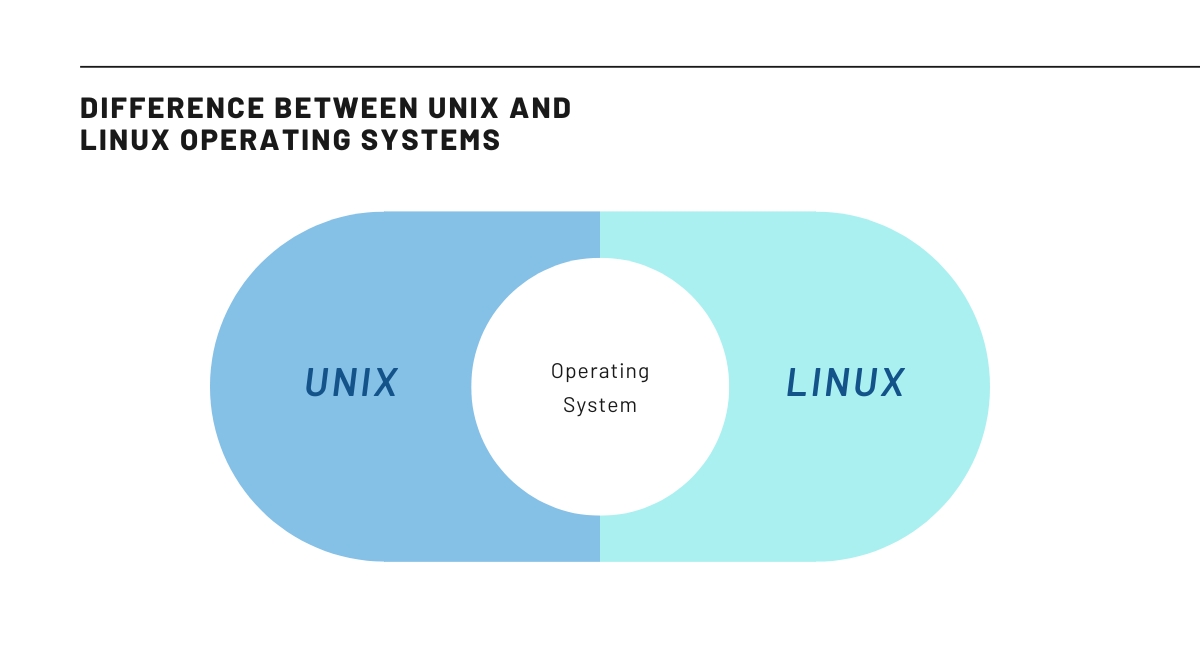Unix and Linux are two of the most influential operating systems in the history of computing. While they share many similarities, there are key differences in their origins, development, licensing, and features. This article will explore the main distinctions between Unix and Linux to provide a comprehensive comparison.
Key Difference Between Unix and Linux
| Feature | Unix | Linux |
| Origins and Development | Unix was originally developed in 1969 at AT&T’s Bell Labs by Ken Thompson, Dennis Ritchie, and others. It was designed as a multi-user, multitasking operating system with a focus on portability and flexibility. Unix evolved, with various commercial and academic versions emerging, including BSD (Berkeley Software Distribution) and System V. | Linux, on the other hand, was created much later in 1991 by Linus Torvalds. It began as a hobby project to create a free, open-source alternative to the proprietary Unix systems of the time. Linux is technically just the kernel, but it is often used to refer to complete operating systems (distributions) that use the Linux kernel along with GNU tools and other software. |
| Licensing and Availability | Unix is typically proprietary and requires licensing fees for use. Different versions of Unix are owned and developed by various companies, such as IBM’s AIX, Oracle’s Solaris, and HP’s HP-UX. These systems are often certified to meet the Single UNIX Specification, which ensures compatibility across different Unix implementations. | Linux is open-source and freely available under the GNU General Public License (GPL). This means anyone can use, modify, and distribute Linux without paying licensing fees. The open nature of Linux has led to the creation of numerous distributions, such as Ubuntu, Debian, and Fedora, each tailored for different purposes and user preferences. |
| Community and Development Model | Unix development is typically controlled by the companies that own the various Unix implementations. While there are open-source Unix-like systems such as FreeBSD, the major commercial Unix variants have more limited community involvement. | Linux has a large, active community of developers and users who contribute to its development and provide support. This community-driven model allows for rapid bug fixes, frequent updates, and a wide range of software options available through package managers. |
| Kernel | Unix kernels are generally larger and more complex than the Linux kernel. Each Unix variant may have its specific kernel design | Linux uses a monolithic kernel that is consistent across all distributions. |
| File Systems | Unix systems typically support a limited number of file systems, such as UFS, ZFS, and HFS+. | Linux distributions, however, support a wide range of file systems, including ext4, XFS, Btrfs, and many others, providing greater flexibility. |
| Hardware Support | Unix OS are often designed for specific hardware architectures. | Linux supports a broader range of hardware platforms, from embedded devices to supercomputers. |
| Use Cases and Adoption | Unix operating systems are primarily used in enterprise environments, particularly for mission-critical applications and servers that require high stability and performance. They are also common in academic and research settings. | Linux has a broader range of applications, from personal computers and servers to embedded systems and mobile devices (Android). It is widely used in web servers, cloud computing, and scientific computing due to its flexibility and cost-effectiveness. |
Conclusion
While Unix and Linux share a common philosophy and many similar features, they differ significantly in their development history, licensing models, and availability. Unix remains a proprietary, enterprise-focused system, while Linux has become a versatile, open-source alternative that has found widespread adoption across various computing domains.
Understanding these differences is crucial for IT professionals, system administrators, and anyone involved in choosing or working with operating systems. Both Unix and Linux continue to play important roles in the computing landscape, each with its strengths and use cases.

